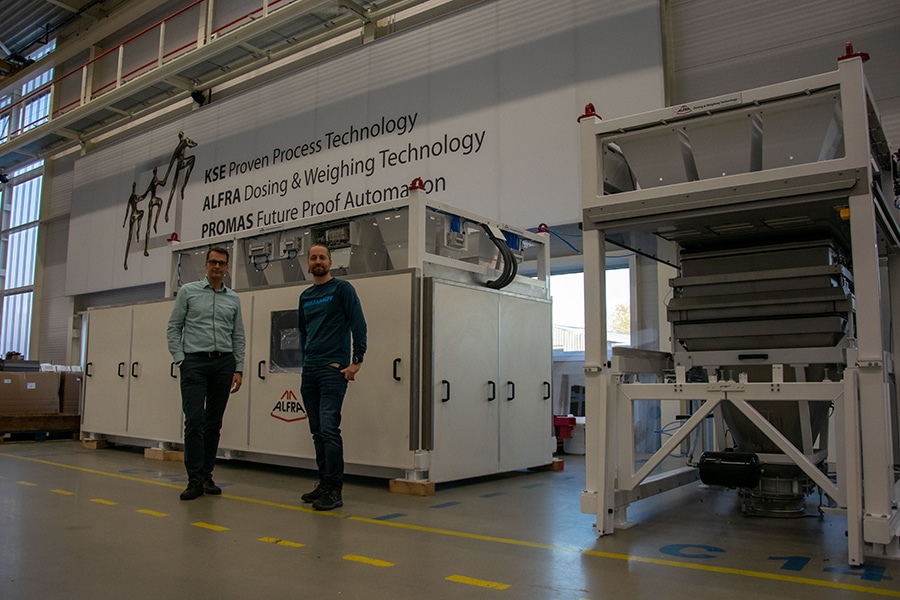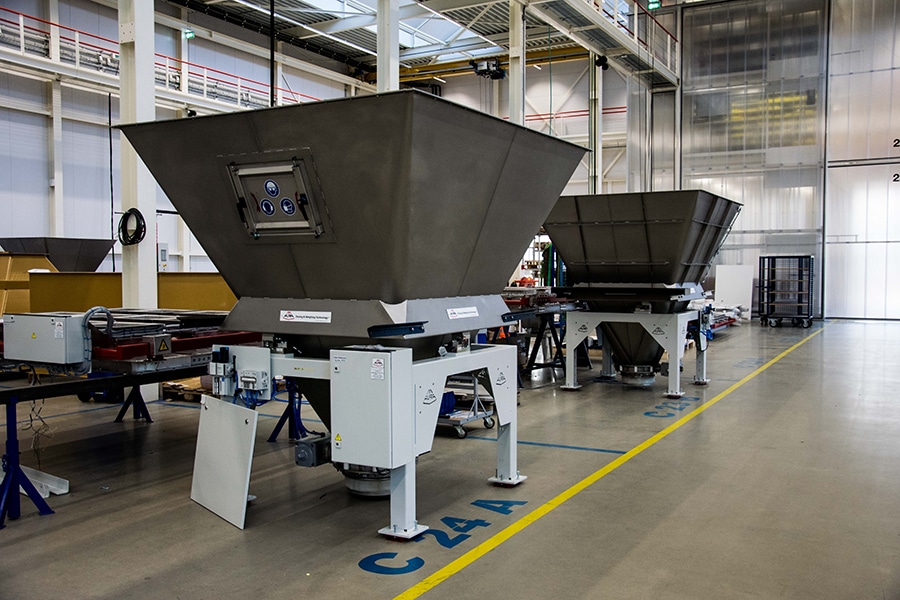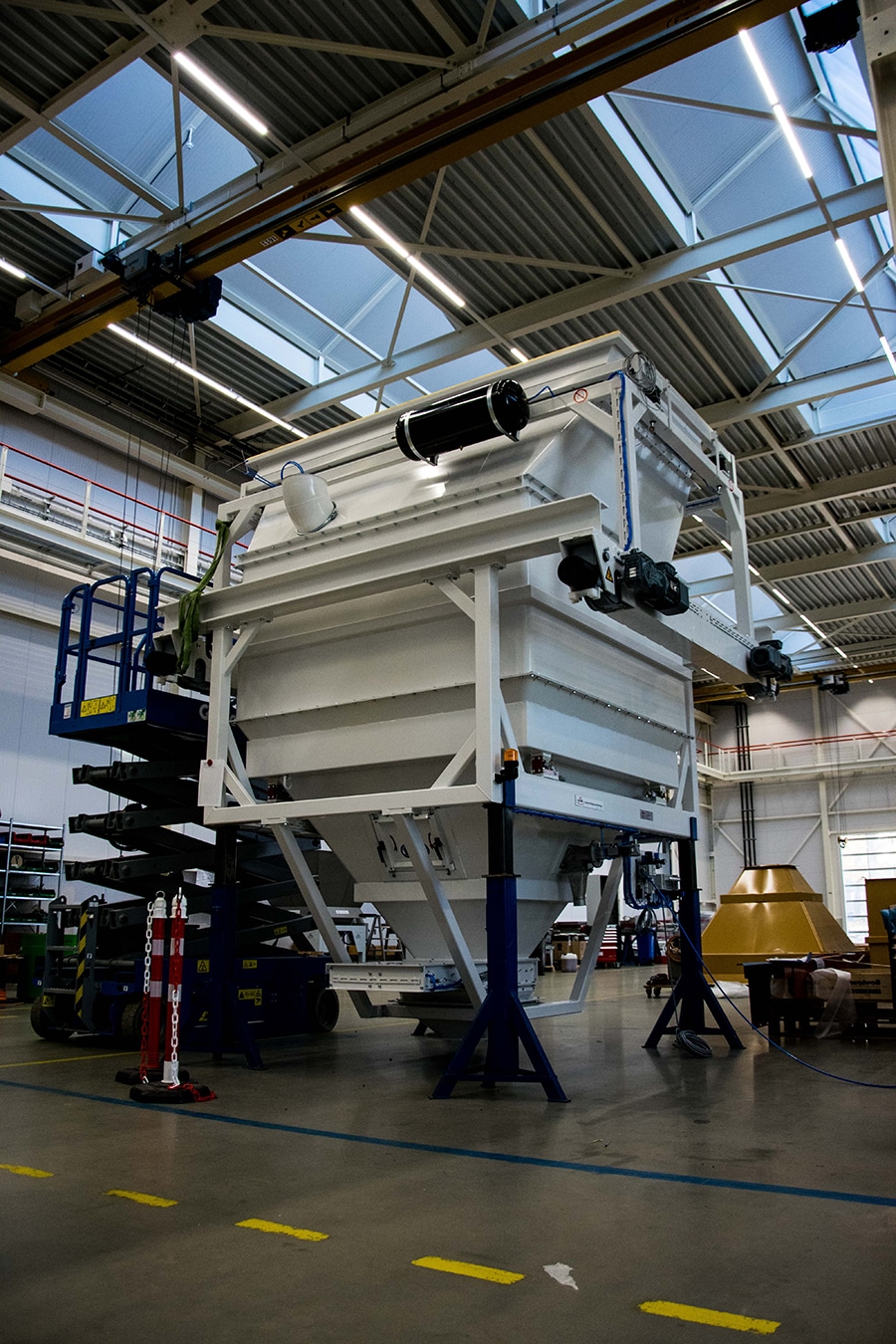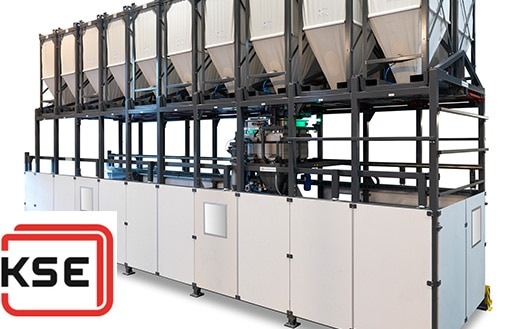Project KSE Process Technology
Since 1973, KSE has been producing software and mechanics with a focus on the feed industry. KSE’s dosing machines are particularly good with powder and granular products, but that’s not all the company offers: in addition to producing dosing and weighing systems, they also have the capabilities to support the automation of entire production lines.
We speak with René Smulders, Chief Commercial Officer, who states: ‘The entry point is often a dosing machine, but we also focus on solving other customer problems with a particular production line. The more variation it has in recipes and ingredients that the customer wants to mix, the greater our contribution can be in making this fully automatic. For example, we can also help companies with questions about inventory, transport, stock, and weighing solutions. And thanks to our extensive network of partners, we can also provide support in the areas of mixers, packaging lines, and pressing lines.’ KSE employs about 200 people worldwide, but about three-quarters of them work from the headquarters in Bladel.

Information dissemination as a bottleneck
Correct, Freely Accessible Information
During the implementation, Harm Goorman, project manager, was able to work independently quickly: ‘Initially, you just have to get to know such a package. We had two days of training for this and three days of support from a consultant from Quootz. In the following period, we usually asked our questions by email, and we always got a quick response to that. In this way, you surprisingly quickly make the package your own.
The fun thing is that by working with Merkato, you also build up knowledge about your own products further.’
Harm tells us that this product knowledge was an unexpected pleasant side effect of the implementation process: ‘By having to capture data from CAD files and other technical documents in rules in Merkato, discrepancies or ambiguities in product descriptions came to light. Then you actually get to know your product really well, and assumptions from the past turn out to be just not correct.’
Originally, the configuration process was functionally specified: customer processes, not products, were thus the basis. Harm: ‘We initially chose not to process the different machines in the configurator, but instead to make the configuration process leading. By asking the customer questions about his production process. So, specify functionally and not technically. Actually, a salesperson can now make a quote with Merkato that fits exactly with the customer’s wishes, even without knowledge of our machines: how many tons per minute need to be processed? How many raw materials can the final product consist of? Someone who has been around longer knows that at xxx weighing capacity, the part belongs with product code abc. New salespeople can now get started much earlier.’
Quick Acceptance
Even employees who initially felt limited in their possibilities by the software quickly turned around after using it, says Harm: ‘Ultimately, you might wonder whether you are really limiting that salesperson in their possibilities: you are just trying to steer more from the standard – and within five minutes, that salesperson has a quote, if he wants. The salesperson can thus give more attention to the problems of his client. As a salesperson, you do not have to wait for the internal sales department, where people might be on vacation or something similar.’ Ultimately, the salesperson actually gets more opportunities to practice their profession even better.
Modularization Made Easier Thanks to Merkato
In the meantime, more and more thinking and engineering are being done in modules, and this approach is also reflected in how the salespeople use the product configurator. Harm:
‘We think less and less in standard machines and more and more in variants of standard modules. I dare to say that we can keep up with that translation thanks to Merkato.’

Independence
Now that the knowledge is captured in Merkato, every salesperson—or other employees involved in a project—is much more independent from colleagues. Harm: ‘Every salesperson can at least completely set up the basics by themselves. He can really start his project and continue communicating with the customer about it. And it doesn’t matter that the quote is not yet completely production-ready: there is always still a moment when we can dot the i’s and cross the t’s.’ Regarding throughput time, René does not necessarily notice a difference, but ‘I’m not so fond of pushing those quotes through.’ He states that in the market sector in which KSE operates, orders just take longer—there can easily be a few years involved. But with Merkato, customers can now get a first quote much faster if desired.
René: ‘Every salesperson can now really give their customers the feeling that a request, which is urgent because, for example, funding must be applied for, can be arranged within a few days. Previously, that took a few weeks.’
In addition, newly acquired information can be used more easily by all employees: what is devised during a project is seamlessly secured in Merkato and can be automatically deployed by the salespeople for the next sale.
Sales Vision Supported
Furthermore, the use of Merkato contributes to KSE’s sales vision: It makes it easier to take a standard product as a starting point at the start of a new project, but at the same time, the software also offers the possibility to deviate from that product where necessary: ‘We have set up the environment so that we can add flexible blocks,’ says René, ‘so we can say, for example, that a certain percentage over those products is a bit of project management. But we can also respond to the specific wishes of a customer through a ‘modification’ or ‘customized solution’ block, allowing us to show the customer very precisely what those adjustments cost in relation to the total price. Merkato gives us a better insight into our price structure. On the one hand, we can clearly show how advantageous the choice for such a standard product can be; on the other hand, it gives us the ability to justify the higher price of a more tailored product.’
Merkato and Tomorrow
Now that the mechanical side of KSE’s production process is well captured in Merkato, they now want to look at the software side. René: ‘A new development within our own company is the software that we want to offer to support the entire production process: We will also process the knowledge rules in Merkato for this—the aim is to generate an output from Merkato based on which our system can program itself.’
In the coming period, attention will also go to diversifying the outputs of the system. We are going to generate a different output for the project team than for the customer: the project team will, for example, have little interest in going through the entire quote every time but will mainly want to know what needs to be built. René: ‘I am curious what cross-section we will produce with that again.’




